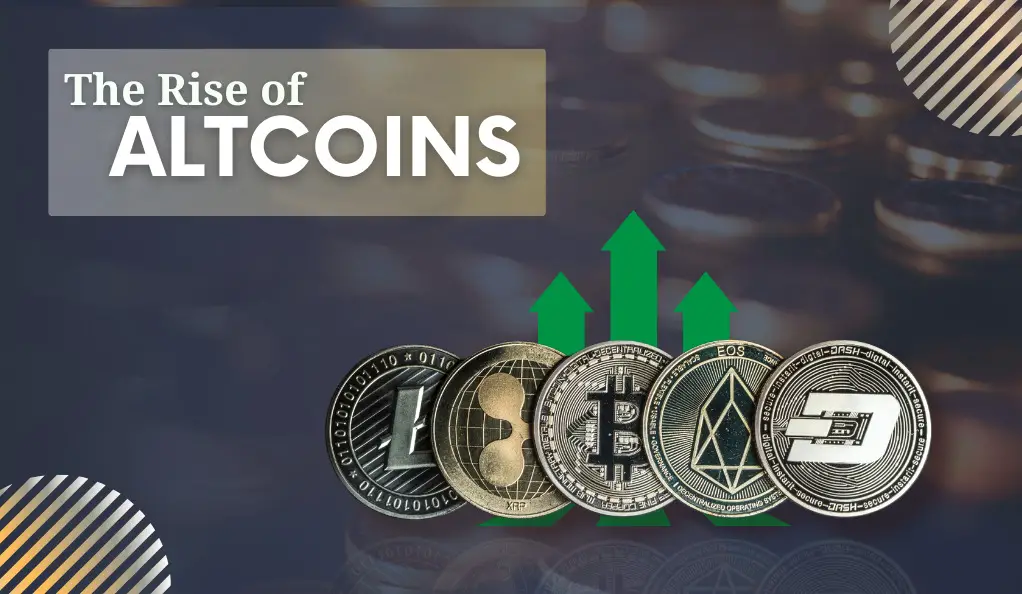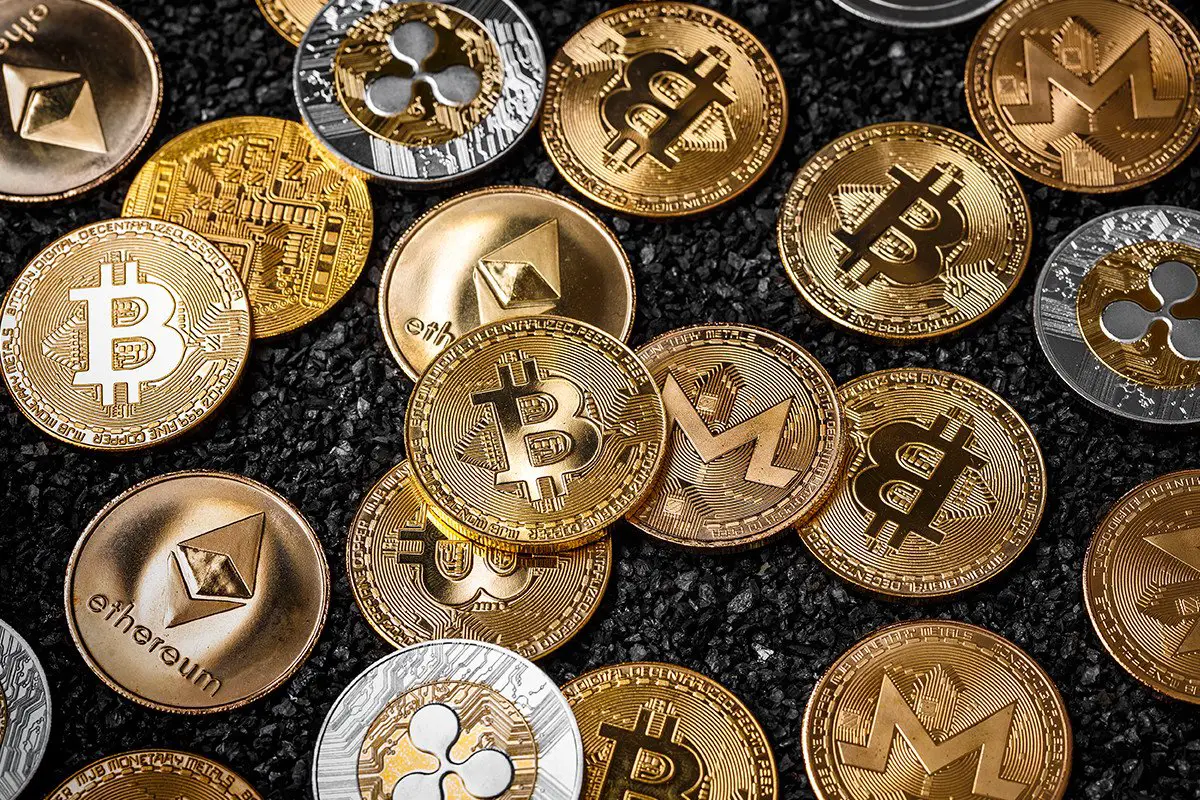The Rise Of Altcoins: A New Era Of Cryptocurrency

Executive Summary

The realm of cryptocurrency has witnessed a surge in the prominence of altcoins, presenting a significant shift in the industry’s landscape. Altcoins, cryptocurrencies alternative to Bitcoin, have garnered substantial interest from investors and enthusiasts alike due to their diverse functionalities, innovative technologies, and potential for substantial returns. This article delves into the world of altcoins, exploring their impact on the industry and the opportunities they present for investors.

Introduction
Bitcoin, the pioneer of cryptocurrencies, has long dominated the digital asset market. However, the emergence of altcoins has brought forth a new era, characterized by a plethora of alternative cryptocurrencies offering distinct features and use cases. These altcoins have injected fresh blood into the cryptocurrency ecosystem, attracting a growing number of supporters and enthusiasts.
Frequently Asked Questions
1. What are altcoins?
In contrast to Bitcoin, altcoins encompass all other cryptocurrencies within the digital asset ecosystem. These altcoins encompass a wide range of functionalities and technologies, including decentralized finance (DeFi), non-fungible tokens (NFTs), and smart contract platforms. They often focus on enhancing specific aspects of cryptocurrency, such as scalability, privacy, or transaction speed.
2. Why are altcoins gaining popularity?
Altcoins have gained traction due to several factors, including:
- Diversification: Altcoins provide investors with the opportunity to diversify their cryptocurrency portfolios beyond Bitcoin, reducing their overall risk exposure.
- Innovation: Altcoins frequently incorporate cutting-edge technologies and innovative concepts, appealing to tech-savvy investors and enthusiasts.
- Potential for growth: Altcoins have historically exhibited significant growth potential, offering investors the possibility of substantial returns.
3. What are the risks associated with investing in altcoins?
While altcoins present potential rewards, it’s crucial to acknowledge the associated risks:
- Volatility: Altcoins tend to be more volatile than Bitcoin, leading to significant price fluctuations that can result in financial losses.
- Lack of regulation: Altcoins often lack the regulatory oversight of established cryptocurrencies like Bitcoin, increasing the potential for market manipulation and fraud.
- Unknown long-term value: The future value of altcoins is uncertain, and investors should carefully consider the potential risks before investing.
Top 5 Altcoin Subtopics
1. DeFi
- DeFi, short for decentralized finance, refers to financial services built on blockchain technology, enabling peer-to-peer financial transactions without the need for intermediaries such as banks.
- Key points:
- Lending and borrowing: DeFi platforms allow users to lend and borrow cryptocurrencies, earning interest or paying it on loans.
- Decentralized exchanges (DEXs): DEXs facilitate the trading of cryptocurrencies directly between users, eliminating the need for centralized exchanges.
- Stablecoins: Stablecoins are cryptocurrencies pegged to the value of fiat currencies like the US dollar, offering a less volatile alternative to other cryptocurrencies.
2. NFTs
- NFTs, or non-fungible tokens, are unique digital assets stored on a blockchain. They represent ownership of physical or digital items, such as art, music, or collectibles.
- Key points:
- Digital scarcity: NFTs create digital scarcity for items that are inherently reproducible, giving them collectible value.
- Authenticity and provenance: NFTs provide verifiable proof of ownership and authenticity for digital assets, preventing fraud.
- New revenue streams: NFTs offer artists and creators new opportunities to monetize their work and connect with collectors.
3. Smart Contract Platforms
- Smart contract platforms enable the development and deployment of decentralized applications (dApps) on a blockchain.
- Key points:
- Automated execution: Smart contracts are self-executing agreements that automatically execute predefined actions when certain conditions are met.
- Decentralization: Smart contract platforms remove the need for intermediaries by facilitating trustless transactions between parties.
- Wide range of applications: Smart contract platforms support a wide range of applications, including DeFi, supply chain management, and gaming.
4. Privacy Coins
- Privacy coins focus on enhancing the privacy and anonymity of cryptocurrency transactions.
- Key points:
- Anonymous transactions: Privacy coins utilize techniques like zero-knowledge proofs and ring signatures to conceal the identities of senders and receivers.
- Fungibility: Privacy coins make all units of a specific cryptocurrency indistinguishable, preventing selective targeting or tracing of transactions.
- Regulatory challenges: Privacy coins may face regulatory scrutiny due to concerns over their potential use in illegal activities.
5. Metaverse and Gaming
- The metaverse refers to an immersive virtual world powered by blockchain technology, where users can interact, play games, and conduct economic activities.
- Key points:
- Virtual economies: The metaverse enables the creation of virtual economies where users can create, own, and trade digital assets.
- Play-to-earn gaming: Play-to-earn games reward players for participating, blurring the lines between gaming and earning income.
- Immersive experiences: The metaverse offers immersive experiences that enhance social interactions, entertainment, and virtual commerce.
Conclusion
The rise of altcoins has ushered in a new era of cryptocurrency, characterized by innovation, diversity, and the potential for substantial returns. Altcoins present investors with opportunities to diversify their portfolios, invest in cutting-edge technologies, and potentially achieve significant gains. However, it’s crucial to carefully consider the associated risks, including volatility, lack of regulation, and the uncertain long-term value of altcoins, before investing. As the cryptocurrency landscape continues to evolve, altcoins are expected to play an increasingly important role, shaping the future of digital finance and virtual experiences.
Keyword Tags
- Altcoins
- Cryptocurrency
- DeFi
- NFTs
- Metaverse
